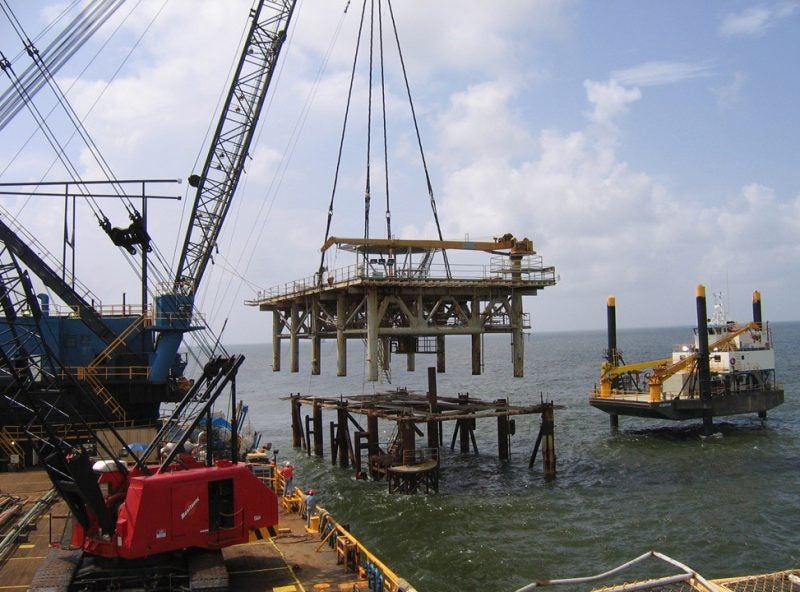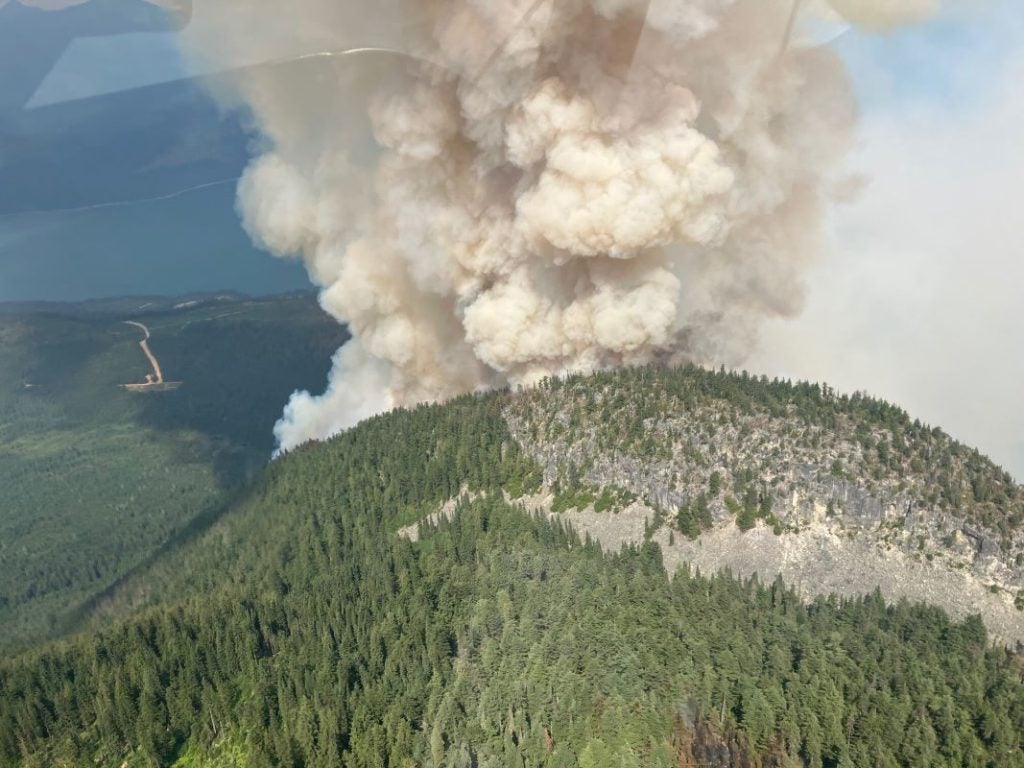
The untenable nature of the oil and gas industry is something of an open secret. Offshore revenues in the UK alone have cratered over the last decade, falling from £10.7bn in 2008-09 to just £1.1bn ten years later, a far cry from the 420% increase in revenue between 1979-80 and 1984-85, and highlighting dramatic increases in both decline, and rate of decline, in UK offshore production.
Yet the sector is not stagnating, with Oil and Gas UK (OGUK) figures reporting close to 300 instances of well activity in 2019, encompassing exploration, development, appraisal and decommissioning, the highest figure in a decade and an increase of more than 100 activities since 2014. This last category, decommissioning work, is the focus of much of this attention; OGUK expects more than £15.2bn ($19.4bn) to be spent on decommissioning work on the UK Continental Shelf (UKCS) alone over the next decade, a small fraction of the $32bn (£25.04) Wood Mackenzie has earmarked for decommissioning between 2018 and 2022. While these predictions cover different geographical scopes and span different periods of time, the point remains clear: decommissioning is an increasingly integral part of the offshore sector.
With this in mind, oil and gas companies are looking to increasingly innovative and sophisticated solutions to abandon offshore rigs with as little environmental damage and financial cost as possible, and players from outside the sector are becoming increasingly involved in bringing unique solutions to the oil and gas industry. Offshore engineering firm Aquaterra Energy has announced a collaborative project with technology firm Oceaneering to deliver several decommissioning services, from abandonment projects to subsea removals, as the industry looks to transition away from its traditional means of operating.
Collaboration and flexibility
“In 2019, we decided to offer a wider decommissioning offering, but lacked the full tooling capability so looked to collaborate with Oceaneering to provide a complete solution,” said James Larnder, Aquaterra managing director. “As a business, we’ve always looked to fill the gaps the industry needs us to provide and this partnership is our next step on this journey.”
Oceaneering certainly fits the brief as a company with a range of services to aid in decommissioning work, with the two companies announcing plans to work together on well abandonment and well removal projects, on both the surface and subsea levels. Aquaterra’s new partner also operates the world’s largest fleet of what it calls “work class” remote operated vehicles, unmanned machines that can work in dangerous environments, such as the sea floor, removing the need for human workers to endanger themselves.
This increased demand for technological innovation runs parallel to an increased importance placed on personal relationships in the sector. As decommissioning becomes a more necessary, short-term concern for many oil and gas producers, building up effective working relationships with technology companies and engineering firms could prove as valuable as deploying the machines and approaches those companies provide.
How well do you really know your competitors?
Access the most comprehensive Company Profiles on the market, powered by GlobalData. Save hours of research. Gain competitive edge.

Thank you!
Your download email will arrive shortly
Not ready to buy yet? Download a free sample
We are confident about the unique quality of our Company Profiles. However, we want you to make the most beneficial decision for your business, so we offer a free sample that you can download by submitting the below form
By GlobalData“We’re already seeing relationships evolving and expect this trend to continue,” said Larnder, going on to draw similarities between these technological and personal developments. “Digital has already changed the way the oil and gas sector works, but there will also remain a role for intelligent engineering. By that we mean thinking smarter about how we engineer and finding unique solutions for even the most complex projects, and that thinking is underpinned by continuing to invest in training for our staff.”
A record of success
The company certainly boasts an impressive track record across its various operations. The firm has a 95% success rate on removing platform-level wells, and 30 successful surface plug and abandonment projects, which it claims has saved its partners up to 50% on decommissioning costs. This varied approach is particularly important considering the uncertain environmental impacts of decommissioning projects, with opinion divided as to whether leaving retired subsea assets in place, to enable new ecosystems to grow around them, is in fact less environmentally disruptive than pulling them out of the ocean altogether.
Oceaneering’s work, therefore, is flexible in its design, and helps to introduce an aspect of adaptability to an industry that has remained historically resistant to sweeping changes. Much of this hesitancy stems from the inherent dangers of offshore drilling, both in terms of the physical and mental health of those employed in remote areas, but with injuries and deaths falling across the UKCS according to government figures, and much of Oceaneering’s work aiming to improve working habits and automating processes to better protect human life, this could be a kind of collaboration and innovation that the industry can welcome.
Making offers and overcoming challenges
This shift towards more flexible operating patterns is reflected in the changes to the way firms involved in decommissioning are making agreements and signing deals. “Offshore operators are working more collaboratively to implement best industry practice,” said Larnder. “The supply chain is following suit by working more closely together in order to offer more complete solutions that are both safe and cost effective.”
This industry-spanning approach, involving the entire oil and gas supply chain, is not surprising considering the existential threat facing the sector. Larnder noted that 2,379 wells in the North Sea alone are expected to be decommissioned over the next ten years, and while the significant financial and environmental consequences of large-scale disruption to the offshore sector cannot be totally avoided, companies can work together to make the transition as smooth as possible.
Ensuring this transition is responsibly managed financially is of particular concern for Oceaneering, with the company’s recent results highlighting the instability of the decommissioning sector. While the firm’s end-of-2019 results were broadly in line with its original predictions, Oceaneering saw an increased reliance on income from ROV operations and new technologies, offsetting disappointing performances in subsea projects and asset integrity.
These shifts saw the firm post a net loss of $348,444 at the end of the year, compared to a loss of $212,327 over the previous twelve months, suggesting that while the company’s technological innovations have proven popular, incorporating these devices into a more holistic, coherent approach to offshore management remains a challenge.
The environmental cost of decommissioning
The environmental cost of decommissioning is no less significant, with machines requiring power to disassemble and decommission large offshore facilities, and the challenge of offshore waste, which must be disposed of as a rig comes to the end of its life. OGUK reported in 2018 that there had been a 41% decrease in the volume of decommissioning waste since 2016.
While this is a strong improvement, the lack of specific policies to tackle this issue suggests that variations in the volume of waste produced are simply those, variations, rather than the results of a coherent policy. Indeed, OGUK noted in its 2018 environmental report that “activity is expected to increase in the coming years” with regard to decommissioning and related waste production.
Environmental concerns underpin many of these challenges, with Larnder drawing attention to increased green awareness across the sector. “The energy transition continues to make headlines, which could see the regulatory bodies driving to push for more wells and platforms to be decommissioned,” he said, “and we expect this to be one of the defining features of the decommissioning market over the next five years.”
“Some typical challenges faced by contractors include difficultly to forecast work scope and execution timelines, perceived capability to handle scopes or even perhaps lack of experience.”







